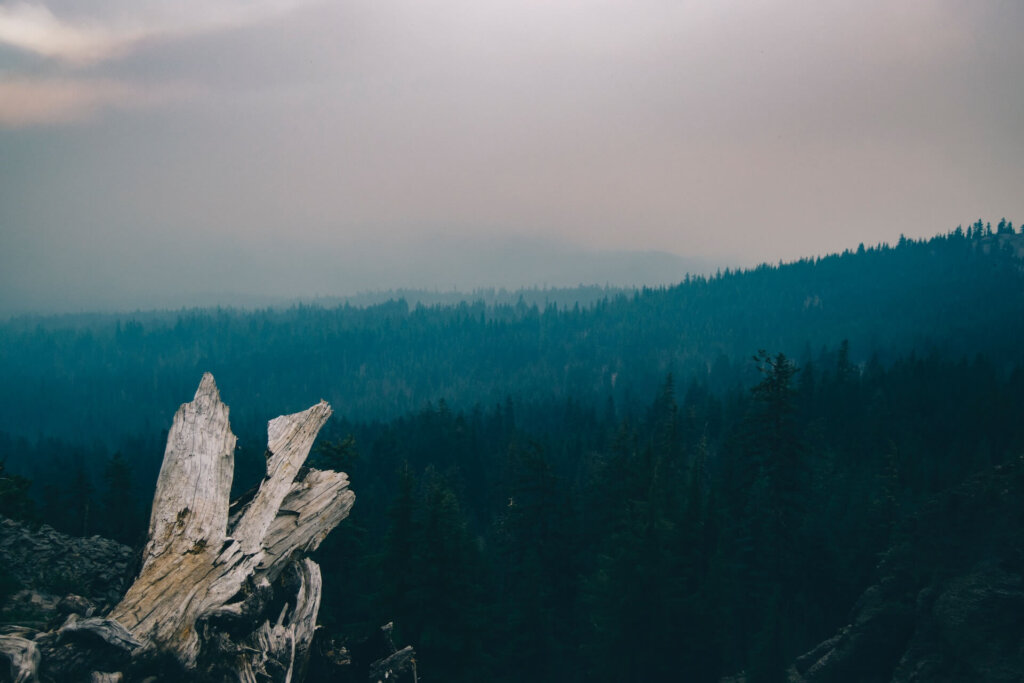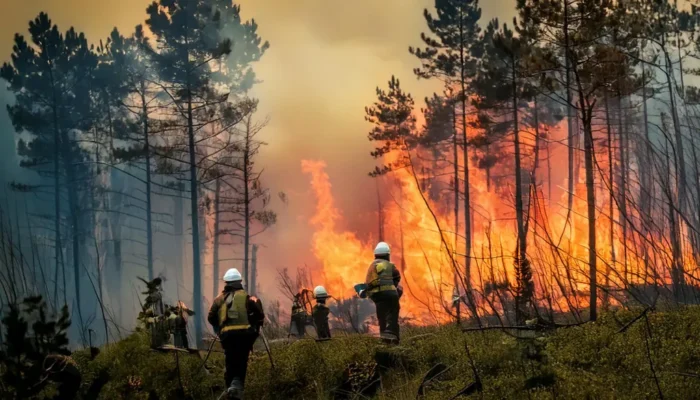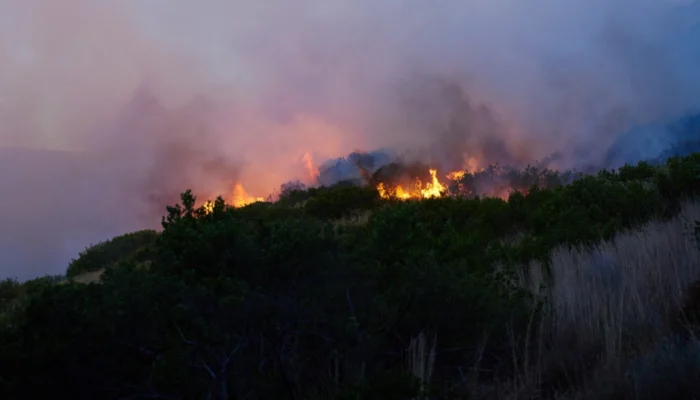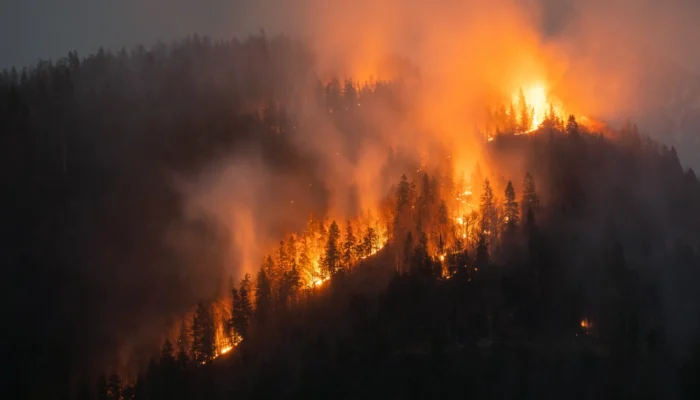Nowadays, we associate wildfires mainly with land and property damage, environmental harm, and financial losses they cause. However, it’s important to remember that fire is, first and foremost, a natural phenomenon that’s been a constant in wildland and forest ecosystems long before Smokey Bear started teaching us about the dangers of forest fires.
With this in mind, let’s take a closer look at the relationship between fire and nature, not from a human perspective but that of the forest ecosystem itself, and understand how ecosystems benefit from wildfires.
.
Table of Contents
ToggleCan Wildfires Have Any Benefits?
At first glance, the answer may seem obvious. After all, fires can destroy habitats and endanger or displace entire populations of plants and animals, so how could they be beneficial in any way, right? But the truth, while counterintuitive, is undeniable – many ecosystems can not only benefit from periodic fires but prosper thanks to them.
To fully understand why, it’s worth looking at this issue from an evolutionary point of view. Evolution favors species that can adapt and survive, and we can observe this in our forests. Many plant and tree species have developed certain characteristics that help them cope better with fire, such as thick bark, deep root systems, and fire-resistant seeds.
Animals’ senses are much more sensitive than ours, which enables them to notice potential dangers early and navigate their surroundings to escape to safety. But not all animals run from forest fires; some species (e.g., amphibians and small burrowing animals) choose a different strategy – they are too slow to outrun the advancing flames, so they look for cover under rocks and underground. Predators and raptors, on the other hand, use forest fires as an opportunity to hunt other animals fleeing from the flames.
.
What Species Benefit From Wildfires?
Not all adaptations to periodic wildfires are focused merely on surviving them. Over the years, certain plants and animals have evolved to use wildfires to their advantage.
Some plants (e.g., shrubs such as coffeeberry or redberry) rely on heat and fire for seed germination. Others, such as certain pine trees, including Lodgepole pine and Jack pine, have serotinous cones that keep mature seeds enclosed until high temperatures from a wildland fire melt the resin, enabling their release.
Animals are not far behind when it comes to making the most out of periodic fire outbreaks. While not all species enjoy equal benefits, with some finding it difficult to survive until their natural habitats regrow, other animals actively seek out burned areas to nest (e.g., black-backed woodpeckers) or lay eggs (e.g., pyrophilic insects, such as certain types of beetles and flies) in dead trees. After the fire thins out the trees and shrubs in the area, more sunlight can reach the forest floor. This allows new plants to grow, providing a valuable food source for herbivores, which, in turn, attract carnivores.
.
What Are the Ecological Benefits of Wildfires?
Wildfires can promote ecological health in woodland and wildland areas by clearing out dead organic material accumulated on the forest floor, recycling nutrients back into the soil, and thinning densely growing trees and shrubs. This creates favorable conditions for smaller plants to grow and thrive.
Fire can also help many ecosystems regain their ecological balance by improving natural habitats for native plants and animals adapted to periodic fires and removing invasive species, pests, and diseases.
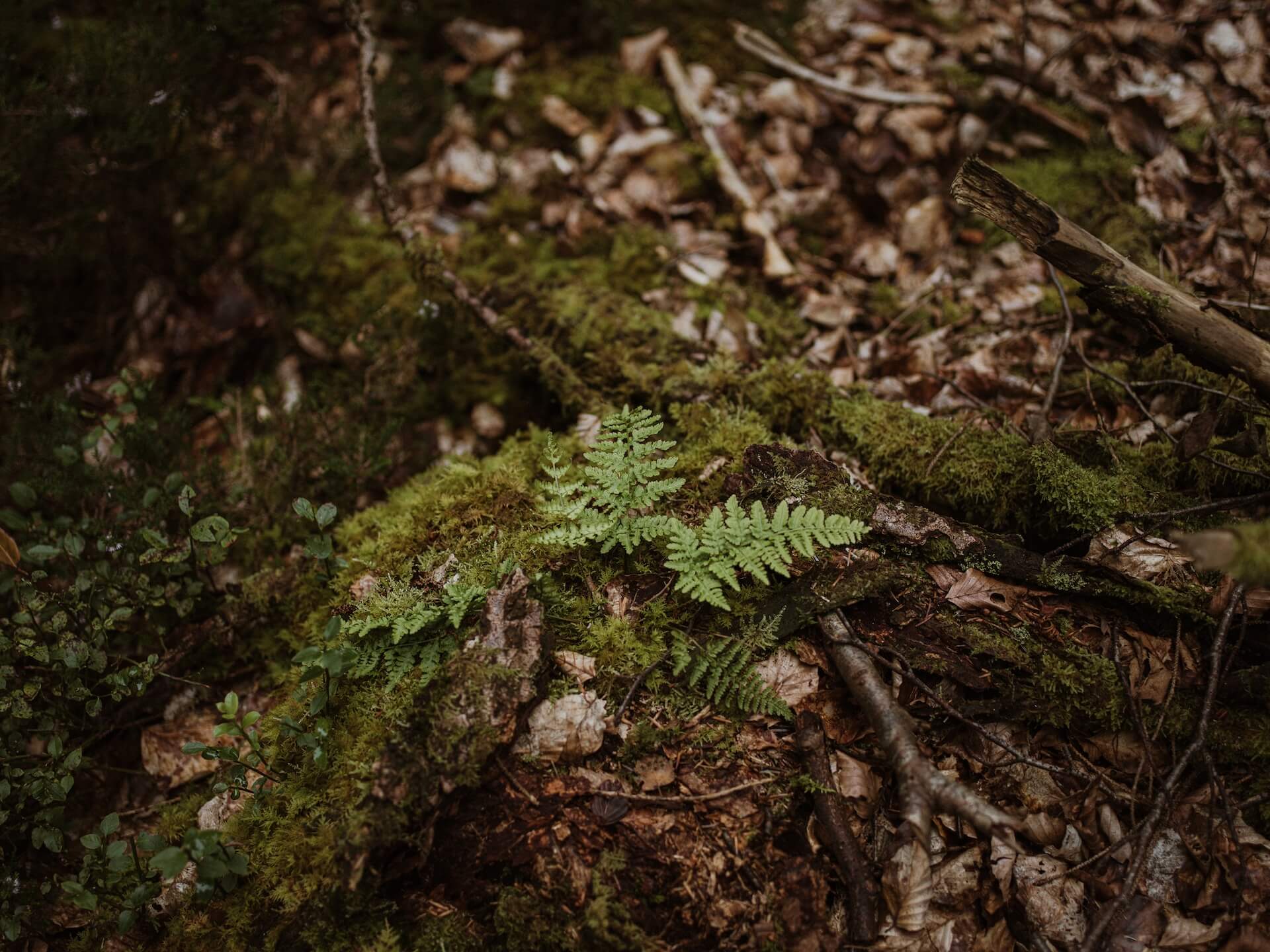
.
Prescribed Burns Can Be Used to Prevent Wildfires
For years, fire suppression was seen as the best method to combat wildfires, but in recent decades, along with our society’s better understanding of the impact of fire on certain ecosystems, a new approach has emerged. Nowadays, prescribed burns are sometimes used by the Forest Service to burn out the build-up of organic matter and dry and dense vegetation to reduce potential wildfire fuel and promote ecological health. Such controlled fires can only occur in the right weather conditions, require tight safety parameters, and must be closely monitored by experts.
.
What Happens When a Forest Fire Gets Out of Control?
It’s important to note that the benefits mentioned above are mostly linked to low-intensity, smaller fires. Unfortunately, in recent years, we’ve seen a clear increase in the frequency and severity of wildfires caused by climate change. High-intensity, uncontrolled forest fires can be just as damaging and harmful to ecosystems as they are to human communities, making it difficult for wildlife to return and rebuild natural habitats.
.
The Negative Impacts of Wildfires on Human Health and Forest Ecosystems
Prolonged exposure to smoke may cause or exacerbate respiratory and heart problems and is especially dangerous for people with pre-existing medical conditions. In recent years, there have also been new reports on the negative impact of wildfires on mental health.
Wildfires significantly impact air quality and water quality, both of which can lead to serious health hazards for both humans and wildlife in the area. Additionally, slow-moving and smoldering wildfires can cause soil erosion, and recurring large fires in wildfire-prone areas can be extremely destructive to local plant and animal populations.
.
Early Detection Is Key In Preventing Uncontrolled Fires
As wildfires continue to become more common and more severe due to climate change, implementing effective preventive measures is now more important than ever before. With our automatic wildfire detection system, it’s possible to monitor large wildland areas 24/7 to quickly identify any signs of fire and smoke. This gives firefighters more time to contain the flames before they get out of hand and evacuate the area if needed.
